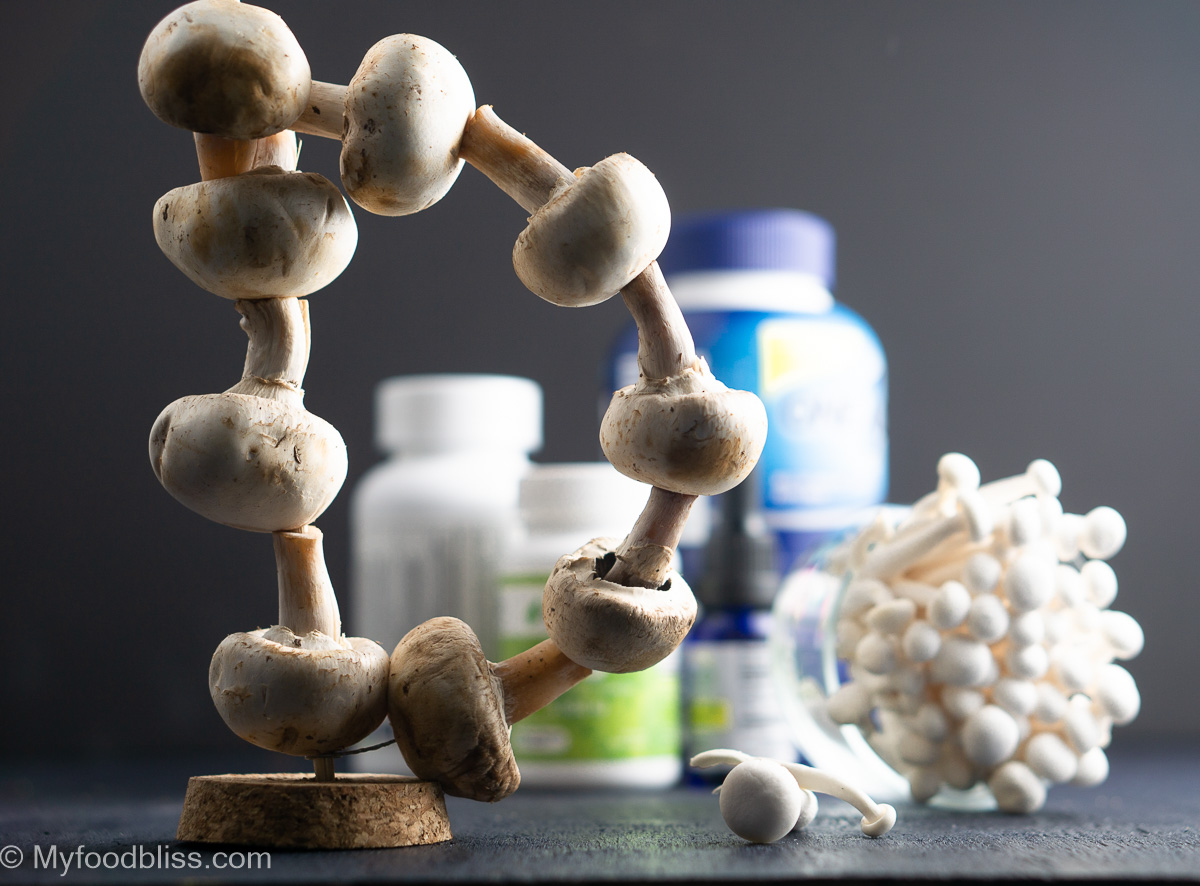Decoding Vitamin D

If there is one nutrient that has gained lot of attention in research and practice over the last few decades, it is Vitamin D. Vitamin D is a micronutrient that we mostly produce (> 50%) with our natural connection with sunlight, through a series of reactions in the body. It can also be obtained from a few food sources. The active form of Vitamin D is a hormone that has been well known to maintain calcium, phosphorus levels. Through the years, we now know that it is now associated with multiple other functions in the body.
How do we get Vitamin D?
- Sunlight– This is the main source of Vitamin D. for humans. The human body has a deep rooted relationship with nature. UV B rays in sunlight convert 7-dehydrocholesterol in human skin to cholecalciferol. Cholecalciferol is then converted by the liver to 25 Cholecalciferol (Vitamin D3), the main circulatory form of Vitamin D . Then the kidney converts the Vitamin D3 to its active form 1,25 dihydroxycholecalciferol.
- Diet– Vitamin D is usually found in fatty fish, egg yolk, fortified dairy and plant based milks, juices, cereals. But, it is impossible to obtain all your required Vitamin D from diet alone. And you would not want to overdo the animal products, that can have other adverse effects. Mushrooms are the only plant source that synthesize Vitamin D2 from sunlight. Leaving mushrooms to sunlight is an efficient way to increase their Vitamin D2 concentration
What factors influence Vitamin D levels in our body?
The amount of time you spend in the sun during before midday, the color of your skin, your distance from the equator play a major role. More exposure to sunlight with out sunscreen or protective clothing, lighter skin tones, living closer to equator help you make more Vitamin D.
Of course, more intake of Vitamin D food sources will increase your Vitamin D levels. But, chronic gut conditions will impair the absorption of dietary Vitamin D. Also obese individuals, have vitamin D accumulated in fat tissues and not easily available.
What does Vitamin D do in our body?
Vitamin D is needed for functioning for more than 1000 genes in the body and can potentially be involved in many cellular functions. Studies noted increased rate of fractures, heart disease, diabetes, cancer, autoimmune, neuropsychiatric diseases in people with low vitamin D levels. Low Vitamin D levels were also noted in critically ill patients with COVID 19.
Despite, the known findings of low Vitamin D in various diseases, there is no current evidence showing a clear cause- effect relationship.
How do you know if your Vitamin D level is low?
A simple blood test to check Vitamin D3 level is all you need to find your body’s Vitamin D status. Optimal level to aim for is more than 30 ng/ml.
Are you at risk for Vitamin D deficiency?
Dark skinned, obese, indoor dwelling, people living in high latitudes, older people, people with gut/liver problems, people taking certain medication that can alter Vitamin D metabolism are at high risk for having low Vitamin D levels.
How much Vitamin D do you need in a day?
Per latest consensus, 600-800 IU is daily recommended intake from diet and supplements, (assuming minimal sunlight exposure) , while 4000 U is the safe upper limit per Institute of Medicine.
The dose, duration of additional supplementation depend on the age, existing health, diet, lifestyle, and known Vitamin D levels if available. Any supplementation should be done under a doctor’s guidance.
What form of Vitamin D should you take for supplementation?
Vitamin D supplementation is usually available in Vitamin D2, and D3 forms. Vitamin D2 (ergocalciferol) is mostly made from plants and is found in fortified foods. Vitamin D3 (cholecalciferol) is found in human body and in animal foods. Numerous studies have shown that supplementation with Vitamin D3 (cholecalciferol) tends to raise Vitamin D levels faster, and also maintain these levels longer in your body. Talk to your medical provider about the right form of supplementation for you, in case you need one.
Bottom line- Get out in the sun, use the natural connection that you are born with. If living in areas or through situations where you cannot get enough sunlight, consider oral supplementation of Vit D, with your doctor’s advice. Keep a tab on Vitamin D levels during your well visit checkups.
And , give yourself another reason to eat more mushrooms !
References-
https://www.ncbi.nlm.nih.gov/pmc/articles/PMC5440113/
https://www.nature.com/articles/s41430-020-0558-y
https://www.ncbi.nlm.nih.gov/pmc/articles/PMC7189189/
https://www.ncbi.nlm.nih.gov/pmc/articles/PMC6132681/
https://ec.bioscientifica.com/view/journals/ec/8/2/EC-18-0432.xml
